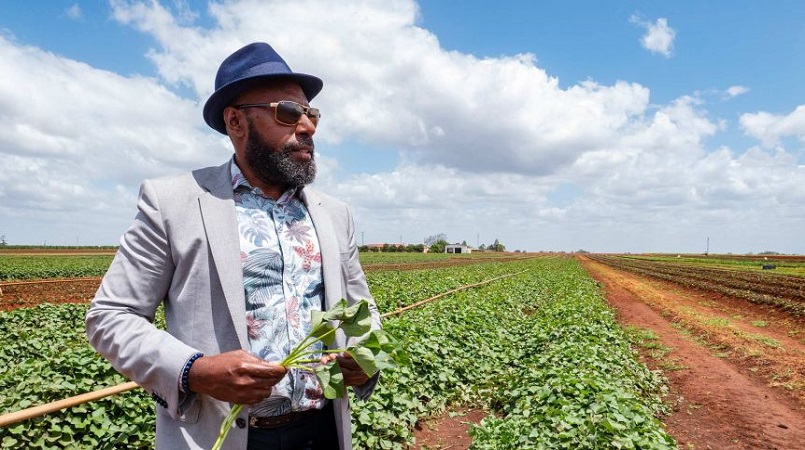
Vanuatu's High Commissioner to Australia has claimed that seasonal workers from the Pacific Island country have faced death threats after becoming embroiled in a bitter employment dispute in regional Queensland.
The controversy has provoked a social media storm in Vanuatu and caused consternation in Canberra, with fears the episode will damage the reputation of the Seasonal Worker Programme (SWP).
The ABC reports the federal government has energetically championed the SWP, arguing it provides Pacific Island workers with valuable employment opportunities while helping Australian farms grappling with labour shortages.
But on Tuesday (local time), High Commissioner Samson Fare took to social media to complain about the treatment of Ni-Vanuatu workers in the town of Bundaberg.
“This week I urgently came to see 51 of our valuable SWP workers in Bundaberg QLD that got sacked by [their] employer,” he said on Twitter.
“They have lots of issues & some very serious, e.g. death threat. This has to be fixed immediately.”
The details of the dispute remain murky. The ABC has contacted the High Commissioner to ask for more information, but he would not say who had allegedly made a death threat, saying he was focussed on finding the best solution for the workers.
“I am still busy with our workers and various pastoral issues that should have been addressed by the [Australian] Department of Education, Skills and Employment,” he said.
However, the ABC has been told it's alleged that some of the men had previously abandoned the workplace which legally employed them under the SWP and had started working illegally for a second regional employer which had promised better pay.
But it's alleged that the workers quickly grew unhappy about their new situation, complaining that they were overcharged for poor quality accommodation and were earning less than they hoped.
Allegedly, tensions later boiled over when their new employer dismissed them, saying there was no longer any work available.
A spokesperson for the Department of Education, Skills and Employment said the death threat allegation made by the High Commissioner was "very concerning."
“Any allegations of serious threats against SWP workers should be referred to the police immediately,” they said.
“The government has zero tolerance for exploitation of workers and underpayment of wages and entitlements."
It's understood that several government agencies are now trying to find the men new employers under the SWP.
Sister Janine Bliss from the Australian Catholic Religious Against Trafficking of Humans in Bundaberg said the workers were facing a “terrible situation”.
“Most of them have been labelled as runaways, as absconders. This is a term that's derogatory. There needs to be some work done on addressing the real issues,” she said.
The episode highlights some of the problems which have plagued the SWP over the last year.
When state borders closed in 2020, large numbers of seasonal workers struggled to find work and some left their legal employers because of low work hours, as well as high transport and accommodation costs.
Some workers also complained they had been lured by false promises of higher pay from unscrupulous labour-hire firms.
Satish Chand from the UNSW School of Business said the controversy could damage the programme's reputation, even though it had an overwhelmingly positive impact in both Australia and Pacific Island countries.
“Importantly, and to the best of my knowledge, the majority of the employers are doing the right thing by their employees,” he told the ABC.
“The drought in terms of backpackers and Kiwis on our farms is making the SWP workers all the more essential for an industry that was experiencing labour shortages before the pandemic.”
Professor Chand said the federal government should consider reshaping the programme to allow seasonal workers to move between employers in Australia.
“[That way] the competitive forces of demand for these workers can lead to improved conditions for the workers,” he said.
“Bad employers will get weeded out in the process. Tying workers to a single employer, at whose mercy workers are for shifts, is a recipe for exploitation of the sponsored workers,” Dr Chand....
Photo source ABC Caption Vanuatu High Commissioner Samson Fare visits a farm in Bundaberg
